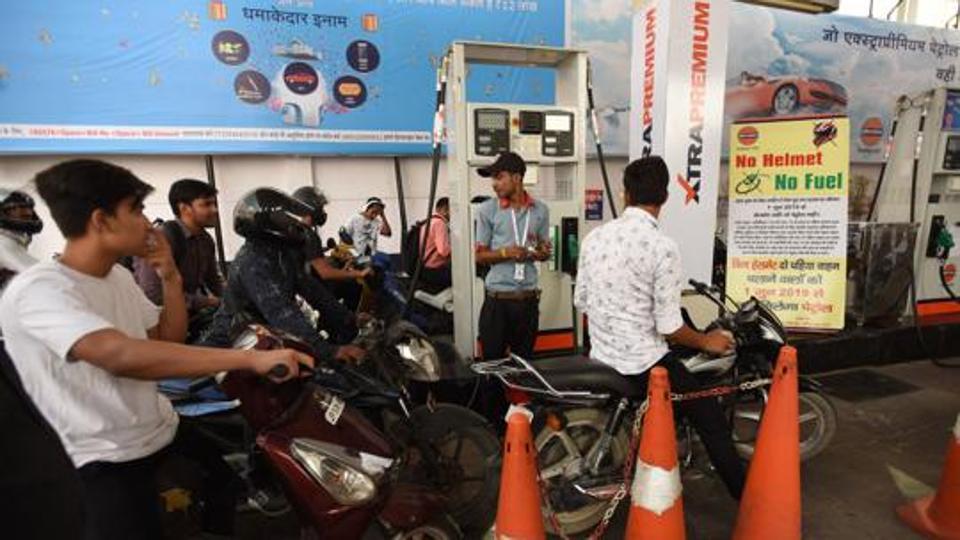
As India leapfrogs to using Bharat Stage-6 (BS-VI) emission norms from April 1, 2020, consumers will have to shell out more to get cleaner fuel in their vehicles. Petrol and diesel prices may go up by 50 paise to Re 1 per litre beginning April, say oil companies.
Petrol currently costs Rs 73.36 per litre in Delhi and diesel is priced at Rs 66.36 a litre.
Sanjiv Singh, chairman of Indian Oil Corporation (IOC), the country’s largest oil firm, said the exact numbers are being worked out but the increase would not be significant to warrant a staggered hike.
“I don’t think premium (for BS-VI) will be larger for it to be staggered,” he said indicating a one-time hike in petrol and diesel prices when the BS-VI grade fuel is rolled out across the country.
Though the exact quantum is being worked out, the increase may be anywhere between Rs 0.50 per litre and Re 1 a litre, he said. The IOC chairman said that the international benchmark price for petrol and diesel compliant with BS-VI grade is higher than BS-IV fuel and since domestic fuel prices are directly linked to global rates, pump prices will have to rise.
Singh also said that all of the company’s refineries have started producing BS-VI grade fuel and the same will reach depots across the country by next month. “We are very much sticking to April 1 deadline and 100 per cent of petrol and diesel in the country will be BS-VI compliant from April 1,” he said.
As part of India’s fuels upgradation programme, the vehicular pollution norms introduced in the early 1990s have been made more stringent over time. The current BS-IV norms were enforced in 2017, after BS-II and BS-III norms, which were enforced in 2005 and 2010, respectively.
In the transition to BS-VI fuels, BS-V norms have been skipped in order to have a more stringent standard at the earliest to curb pollution levels.
As per the roll-out plan, national capital Delhi and adjoining cities were to have BS-VI fuel supplies by April 2019 and the rest of the country from April 2020. Oil firms switched over to supply of BS-VI grade fuels in the national capital territory (NCT) on April 1, 2018. Supply of BS-VI fuels was further extended to four contiguous districts of Rajasthan and 8 of Uttar Pradesh in the national capital region (NCR) on April 1, 2019, together with the city of Agra. BS-VI grade fuels were made available in 7 districts of Haryana from October 1, 2019.
BS-VI fuels are ultra-clean fuels with sulphur content cut to just 10 parts per million (ppm) from 50 ppm in BS-IV fuels. The emission norms of BS-VI diesel are as good or even superior to those of compressed natural gas (CNG).
The retail prices of fuel are dependent on the international crude prices and the rupee-US dollar exchange rate as India imports almost 80 per cent of its crude requirements.
Domestic petrol and diesel prices are reviewed by oil marketing companies on a daily basis. Price revisions are implemented at the fuel stations with effect from 6 am.